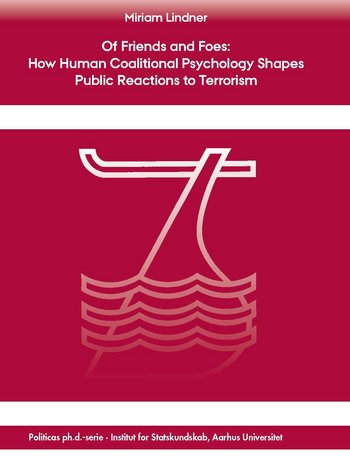Miriam Lindner
Of Friends and Foes: How Human Coalitional Psychology Shapes Public Reactions to Terrorism

While previous studies document the widespread and often severe consequences of terrorism on the public, academic scholarship has yet to integrate the findings under a single theoretical framework that explains why the public reacts so strongly to terrorist violence and thereby makes it possible to explain how these reactions are shaped. This dissertation builds on the framework of human group-based, or coalitional, psychology in explaining public reactions to terrorism. Specifically, it examines the importance of two distinct yet interrelated mechanisms: between-coalition threat assessment and maintenance of within-coalitional alliances. In order to test the central tenets of the proposed framework, it builds on rich variation in research designs, experimental manipulations, and large datasets that provide a high degree of robustness and external validity. Overall, the results support the notion that modern terrorism corresponds to the ancestral challenge of coalitional aggression, such that that the presence of even subtle coalitional threat cues is sufficient to elicit domain-specific responses in the political realm. Further, the dissertation presents evidence that political elites assume a more important role in exacerbating rifts among the public than assumed. Political elites cannot only harvest their influence on the public in the aftermath of terrorism, for example in order to sway public opinion on security matters, but also use it to ‘mute’ partisan rifts. As such, the dissertation opens up new ways to potentially mitigate some of the negative effects we so often witness in the aftermath of terrorist violence, and which threaten to tear at our social fabric.
![]() Ophavsretten tilhører Politica. Materialet må ikke bruges eller distribueres i kommercielt øjemed.
Ophavsretten tilhører Politica. Materialet må ikke bruges eller distribueres i kommercielt øjemed.